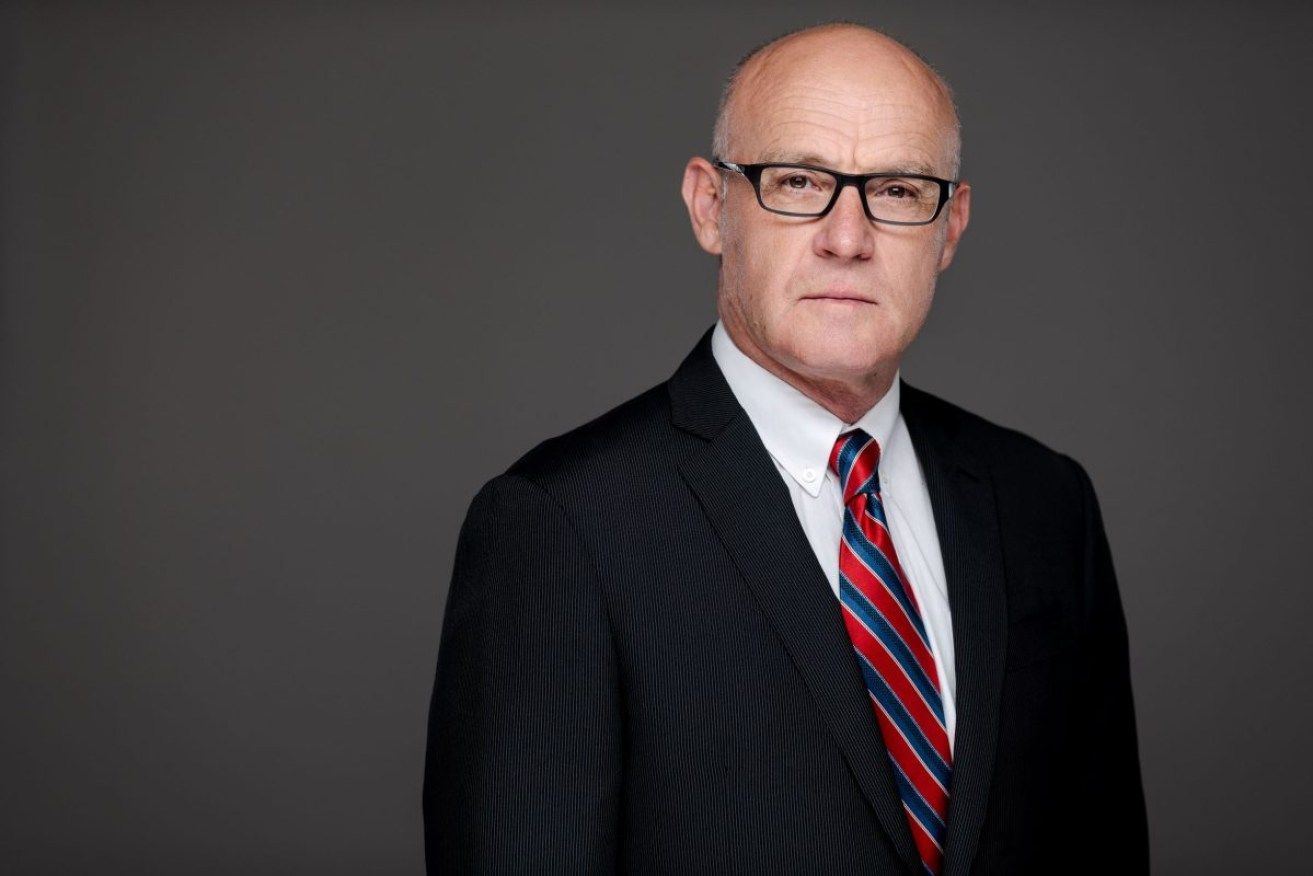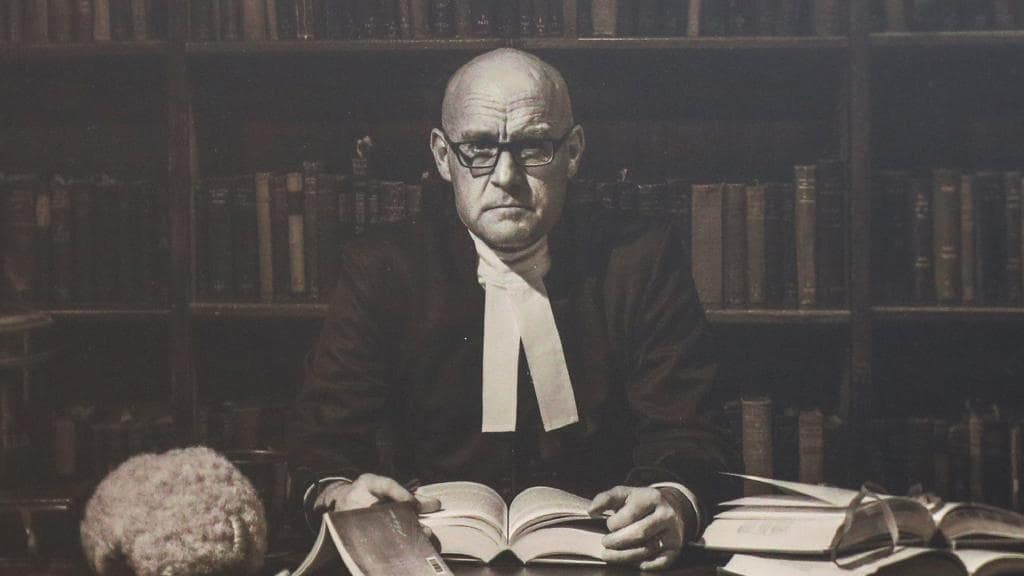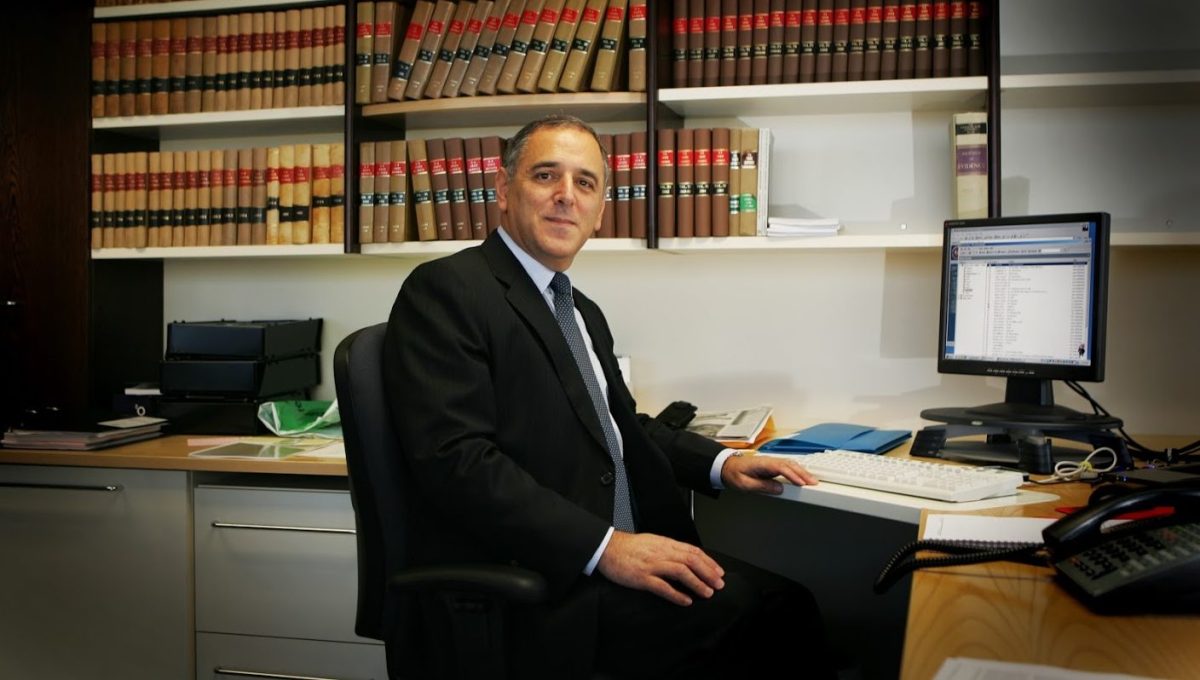‘We can do better’: Top prosecutor vows reform and considers funding plea
Martin Hinton KC is vowing to stay on as the state’s Director of Public Prosecutions to fix a range of workplace issues identified within his agency as he considers pushing the Malinauskas Government for more funding.


Director of Public Prosecutions Martin Hinton KC. Photo: supplied
Attorney-General Kyam Maher on Tuesday tabled in parliament a government-commissioned workplace experience report into the Office of the Director of Public Prosecutions (ODPP).
The report, compiled by independent consultant Rosslyn Cox, surveyed 197 current and former ODPP staff and found that respondents described being subjected to “unacceptable, unreasonable and unsustainable levels of pressure and stress”.
It also said it received feedback that the office is “ill equipped to manage the realities of a modern ODPP” and has office management that is “dysfunctional, reactive and broken”.
But the report also found the ODPP was in a “uniquely challenging position” between SA Police and the courts, where it was unable to control the inflow of legal work.
Hinton, appointed DPP in 2019, personally apologised in May this year after reading the survey results.
In a wide-ranging discussion with InDaily after the report’s release on Tuesday, he acknowledged that he had “compounded stress” among staff by personally working long hours and saying the ODPP must do “more with less”.
“So, when you add, ‘look at the way he works’, when you add that he says, ‘we have to do more with less’, and when you add we don’t do 37 hours (a week) – where are you left, except here comes more files, because we can’t control input,” Hinton said.
“So, I can see that by saying those things without qualification, by working the way I have without qualification, I’ve compounded stress, because people wouldn’t come forward and tell me.
“And that’s why I apologised.”
The Attorney-General today publicly backed Hinton to stay on as DPP. Hinton also said there was “nothing in the report or from my conversations with the report writer that suggests that the position in which we find ourselves is such that I should cease to be DPP”.
“Can we do better? Of course, we can do better. Is it necessary that someone loses their job? Well, it’s not (Attorney-General’s Department CEO) Caroline Mealor, it’s not the Attorney, the buck stops with me.
“At the moment the way I’m read the report… it doesn’t call for me to go. If that changes, okay that changes.
“The one thing I won’t do is harm the DPP, the office of the DPP. I’ve too much respect for the work that people have done and do do, past and present, for me to be in the way of it… or the people of this state having confidence in it.”

DPP Martin Hinton. Photo: supplied
The report makes 20 recommendations for change, which both the Attorney-General and the DPP have committed to implementing.
Asked later if he wanted implementing the report recommendations to be his legacy as director, Hinton said: “I’d like that to be so – I’d hate it to be that I left without having the opportunity.”
Hinton is not the first South Australian DPP to be handed a damning report outlining problems within his agency.
His predecessor, Adam Kimber, was handed an independent report in 2016 that found the DPP was funded considerably less than interstate counterparts resulting in them delivering the nation’s lowest conviction rates, highest withdraw rates and longer-than-average case durations.
Kimber, DPP from 2012 to 2019, was also handed a similarly damning workplace wellbeing report in 2017 which was only publicly revealed earlier this year.
The latest report makes an “immediate” recommendation to Hinton that within the next six months he reduce and manage “external workload pressures and timeframes” through negotiations with the courts.
“Should the Director not be able to reduce workload demands through negotiation, (it is recommended) that the Director work with the Department to prepare a budget submission for the consideration of the Attorney-General to increase resources in the office,” the report states.
Hinton said the ODPP got a “sizeable” funding and resource boost under former DPP Stephen Pallaras, who during his tenure from 2005 to 2012 had regular public spats with the Rann Government over resourcing.
Hinton said neither he nor Kimber received a commensurate funding increase.
“(Pallaras) would scream and yell to the media about his absence of resources,” Hinton said.
“Maybe that’s what I should have done to get what we needed. Maybe Kimber should have done that to get what we needed – it seems to be effective.

Former DPP Stephen Pallaras.
“But equally, we get on with the job.
“So, it’s easy to point the finger at us. I’d really ask to look at what people actually did do with what they had, and I think Justice Kimber with what he had did a fantastic job.”
I get that (if) you give me one more prosecutor it means one less teacher and a hard job for the Treasurer – I get that – but I have a report now that tells me I must ask.
Hinton also said the ODPP has become subject to “bracket creep” because it must prosecute new major indictable offences coming under legislation along with an increasing number of “extraordinary matters” involving complex briefs and lengthy trials.
Among the resource drains noted by the Cox report is Operation Ironside – a major international underworld sting resulting in 40 trials for the ODPP, 15 of which involve four or more accused, according to the report.
The state government has provided more than $12m in support for the ODPP to deal with Ironside cases.
“I’ve got money for Ironside, but that’s largely paying myself back and I get a bit more… and I’m grateful for that,” Hinton said.
“And I get that (if) you give me one more prosecutor it means one less teacher and a hard job for the Treasurer – I get that.
“But I have a report now that tells me I must ask. I must ask for something possibly along the lines of what Mr Pallaras did and successfully got that perhaps Mr Kimber didn’t get.”
Hinton said the introduction of new major indictable offences along with new court technology were positive things but had compounded pressure on the ODPP.
“Resourcing has been an issue and will always be an issue,” Hinton said.
“We’ll get something and we’ll be alright, and then the volume of work will go up, new criminal offences come in.
“All these things are good things, but it’s like bracket creep for taxation – you get to a point and suddenly overnight you realise: who’s doing all this work?
“And I think that’s where we are. We’re at the position similar to what Stephen Pallaras found himself at all those years ago when he suddenly got that input of 22 people.
“I think Kimber with respect to him – a very good DPP, a very good lawyer – has lived with his resources and done the best he could.
“And now we get to the point where we’re being told, ‘no, it’s risking wellbeing, it’s harming people, no’ – and I accept that.”
Maher, the Attorney-General, told parliament on Tuesday the government would be re-establishing a “criminal justice ministerial taskforce” to examine issues within the Cox report and “explore options to reduce the amount of workload pressures impacting the criminal justice sector”.
Among the other recommendations in Cox’s report is to reshape the Deputy Director of Public Prosecutions into a more office management-focused executive director position.
Hinton said he supported this change and it was similar to something he advocated for before the pandemic hit.
“Because of the way the public service operates… we put our more elite lawyers in the management positions so that they can get paid something close to their market value that they’d get if they didn’t work for government,” he said.
“Now if you for example have an elite surgeon, you don’t want them running your hospital, you want them in your operating theatre, and you want to pay them according to their skill in the operating theatre.
“It seems to me a similar sort of logic applies to our prosecutors.”




